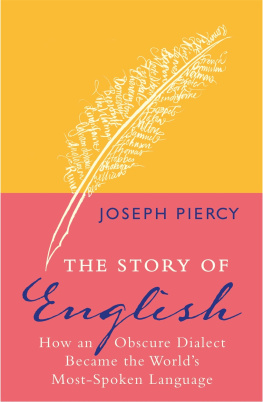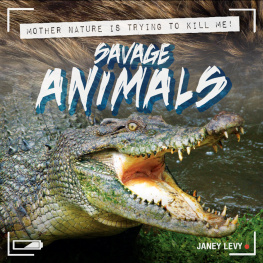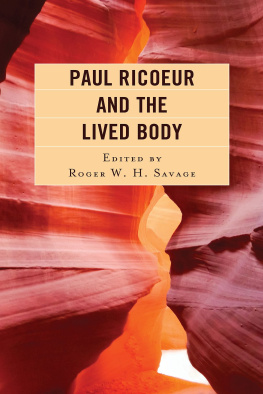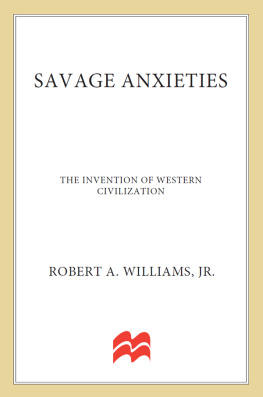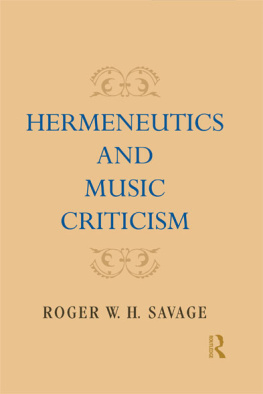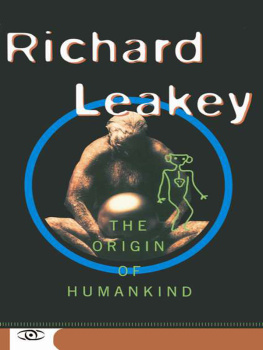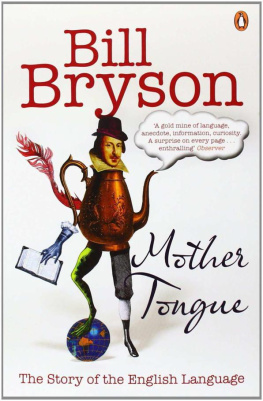KANZI
KANZI
The Ape at the Brink
of the Human Mind
Sue Savage-Rumbaugh
Roger Lewin

This text is printed on acid-free paper.
Copyright 1994 by Sue Savage-Rumbaugh and Roger Lewin.
Published by John Wiley & Sons, Inc.
All rights reserved. Published simultaneously in Canada.
Reproduction or translation of any part of this work beyond that permitted by Section 107 or 108 of the 1976 United States Copyright Act without the permission of the copyright owner is unlawful. Requests for permission or further information should be addressed to the Permissions Department, John Wiley & Sons, Inc.
This publication is designed to provide accurate and authoritative information in regard to the subject matter covered. It is sold with the understanding that the publisher is not engaged in rendering professional services. If legal, accounting, medical, psychological, or any other expert assistance is required, the services of a competent professional person should be sought.
Photographs on pp. 62, 141, and 182 Language Research Center, Georgia State University Library of Congress Cataloging-in-Publication Data:
Savage-Rumbaugh, E. Sue.
Kanzi : the ape at the brink of the human mind / Sue Savage-Rumbaugh, Roger Lewin.
p. cm.
Includes bibliographical references (p. ) and index.
ISBN 0-471-58591-2 (cloth) ISBN 0-471-15959-X (paper) 1. Kanzi (Bonobo) 2. BonoboPsychology. 3. ChimpanzeesPsychology. 4. Learning in animals. 5. Animal communication.
I. Lewin, Roger. II. Title.
QL737.P96S26 1994
599.88440451dc20
94-9038
10 9 8 7 6 5 4 3 2
This book is dedicated to my mother and father, who gave their entire lives selflessly to their seven children, with never a thought that any parent might do otherwise. They worried over us, they prayed for us, and they tried tirelessly to set the best example they knew how, too often feeling they had fallen short.
My father taught me to value life and honesty and always to give my best to both. My mother taught me that the qualities of grace and kindness may not come easily, but they must constantly be sought, for they form the nexus of all relationships.
When I first began to study apes, they wondered why. When I first was bitten, they asked why. I hope that nowthey will know why.
Contents
Preface
This book really began the day the first joint of my right index finger was severed by an ape I didnt even see. Up from the bowels of a dimly lit cage she raged and parted me from the first joint of my finger. Was she angry at me? She didnt even know me, nor I her. I had just come to the Oklahoma Chimp Farm to learn about the signing apes, the ones that were supposed to talk to you with their hands. Little did I know that most adult chimps living in social groups are not kindly disposed to strangers, viewing them as something of a threat to be dealt with immediately. This was long before Jane Goodall had learned that apes kill members of other groups in the wild.
I had begun to study apes only a few months before this bite, but already, within three days of meeting them, I knew that the rest of my life would be spent studying apes. So like us they are, and yet so distinctly different in some ways. It had not taken long to see that human beings could learn a great deal about themselves and the kinds of creatures they might once have been, by studying apes. How much of the ape was left within us and how much of what we had become resulted from the complex society we had managed to build? I was fascinated with this question and knew that many of the keys to its answer lay hidden within these animals. It never occurred to me to stop studying them because I was bitten, either then or on the many occasions that followed. Each time I learned more about what can prompt aggression and grew grateful for the insights, if not for the injuries.
With something of a passion, I set about to find out how apes become apes. Does it just happen naturally or do they need to be taught how the world works just as human children need to be taught? This book is about one ape out of the eleven that I have studied. This ape, a bonobo named Kanzi, began to learn language on his own, without drills or lessons.
The collaboration that resulted in the telling of Kanzis story began late one afternoon with a phone call from Roger Lewin, not long after Roger had come to the Language Research Center to see Kanzi for himself. Roger greatly enjoyed his visit, but I was feeling discouraged because in response to everything I had asked Kanzi to do, he either refused, appeared to have no clue as to what I was asking, or did exactly the opposite to what I had asked. Kanzi didnt really like being watched by strangers. When people came to see Kanzi for themselves, he often tried to determine what sort of a reaction he could get from them by startling them at unsuspecting moments. Kanzi does not like strangers in his space because he cannot understand why they want to come and stare at him. I knew that Roger was thinking of writing a report on the work at the Language Research Center for the New Scientist, and given Kanzis lackluster demonstration, I feared the headline might read, Brilliant Ape Experiences Memory Lapse.
Having ones scientific findings painstakingly collected over decades thrown into question by the attitude of an ape toward visitors has been something that I have had to accept as a consequence of daring to study what is called ape language. Actually, I never intended to study ape language at all. I started out in the late 1960s as a behaviorist hoping to discover principles whereby behavior could be controlled but came to conclude that control was not only an elusive goal, but a dehumanizing one as well. I shifted my focus to attempting to understand the development of the mind in very young children, as it seemed that if this were elucidated, perhaps our society could use such knowledge to build better individuals from the start.
Sometimes the problems of our society are blamed on poverty, other times they are blamed on lack of crime control, and on other occasions they are said to arise from lack of tolerance. We do not yet understand why one individual born into an unstable, lower socio-economic family becomes a president and another becomes a criminal. Is it really just bad genes? Or could there be experiences that would enable any child to reach inside himself or herself and pull out the best instead of the worst, as both come packed into each human being?
It is not possible to rear human children experimentally in such a way as to look for answers to this question. Nor can one watch and see as children are raised. Twenty to forty years are required to follow children from birth to adulthood. Even when psychologists are prepared to put their careers on hold for this length of time and even if they are able to obtain money for such work, they cannot really watch what happens inside the family. They find themselves limited to interviewing people briefly, giving standardized assessment tests, and perhaps videotaping some standardized interactions. But since we dont really know why one person succeeds and another does not, we dont know what to test for. Our tests measure what is easy to measure, whether or not it is relevant, and at the end of such studies, we are still left only with measurements. We must search to correlate these in a quest to determine which variables are related to success, assuming that the recipe for making a person may lie, for example, in the degree of correlation between income and maternal time in the home.


